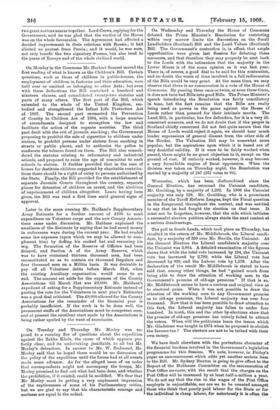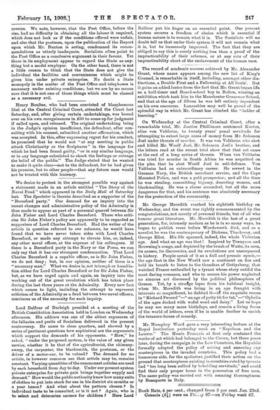We have dealt elsewhere with the portentous character of the
financial burdens involved in the Government's legislative prograname for this Session. We note, however, in Friday'Ei paper att announcement which adds yet another serious item to the Bill. Mr. Sydney Buxton is going to give effect to the Report of the Hobhouse Committee on the remimeration of Post Office servants, with the result that the charges on the Post Office will be increased by at least half-a-million a year. We do not say that the rise in the wages of the Post Offie.e employes is unjustifiable, nor are we to be counted amongst those who think that poorly paid labour for the State or for the individual is cheap labour, for notoriously it is often the reverse. We note, however, that the Post Office, before the rise, had no difficulty in obtaining all the labour it required, which does not look as if the conditions offered were unfair, and also that the postmen, upon the publication of the Report upon which Mr. Buxton is acting, condemned its recom- mendations as utterly inadequate. Socialists often point to the Post Office as a conclusive argument in their favour. Yet those in its employment appear to regard the State as any- thing but a model employer. On the other hand, there is not a little reason to think that the State does not give the individual the facilities and conveniences which might be given him under private enterprise. No doubt a State monopoly in the matter of the Post Office and telephones is necessary under existing conditions; but we are by no means sure that it is not one of those things which must be classed as a necessary evil.





































 Previous page
Previous page